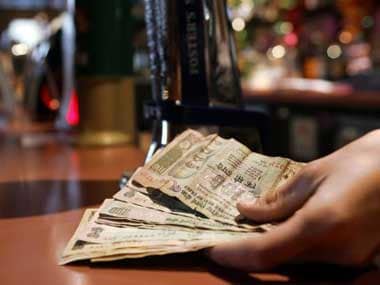The economic survey showed that the ratio of savings to GDP for household sector savings rate dropped from 22.3 in 2011-12, form 23.5 in 2010-11. Good enough reason for the FM to create the right environment for the investors in this financial 2013 -14 for investors. As an investor your money life will undergo certain changes, after the proposals in today’s Union Budget. To know more, read on.
- As an important step to promote infrastructure sector last month two Infrastructure Debt Funds (IFD) were launched. The FM said that IDFs will work as an important instrument to boost the infrastructure sector. Until now, four companies have filed papers for IDFs with regulator Sebi. IL&FS and IIFCL already have registered with the Sebi to start the IDF. ICICI plans to start an NBFC IDF. Sebi is considering more applications to start IDFs.
[caption id=“attachment_643415” align=“alignleft” width=“380”]
 Tax-free bonds worth Rs 50,000 crore will be allowed in the coming financial year. AFP[/caption]
Tax-free bonds worth Rs 50,000 crore will be allowed in the coming financial year. AFP[/caption]
- Tax-free bonds worth Rs 50,000 crore will be allowed in the coming financial year. For instance, IIFCL have been successfully issuing such tax-free bonds. The companies are permitted to issue such bonds based on their need for funds.
- The Rajeev Gandhi Equity Savings Scheme (RGESS), which was announced in the last budget and offer a deduction under Section 80 CCG, has a few changes in its features. This scheme will encourage with the objective of encouraging savings of small investors in the domestic capital market. Anybody who has not invested in equities before and has a gross total annual income of Rs 12 lakhs can invest in RGESS. Earlier, it was Rs 10 lakh.
Lakshmi Iyer - Head (Fixed Income and Product) Kotak Mahindra Asset Management Company said, “Now, you can get a tax benefit for three years when you invest in RGESS.” But, that does not mean it’s got any easier to invest in RGESS. Jimmy Patel - Chief Executive Officer of Quantum Asset Management said, “Only eligibility limits have been increased to Rs12 lakhs. But the process to invest in RGESS still remains cumbersome. The defenition of first time investor is still not clear, and opening of demat account is still mandatory.”
- For those looking to buy their first house, the FM had some great news. If you take a home loan of up to Rs 25 lakh, in 2013-14, you will get an additional tax benefit of Rs 1 lakh on the interest amount paid. As of now, the tax benefit is up to Rs 1.5 lakh on interest amount paid on self occupied house. Vineet Agarwal, Director, KPMG said, “Over all, looking as far as middle class poeple go, this is a healthy budget for them. A tax benefit of Rs1 lakh over the existing Rs1.5 lakhs will benefit many first time home buyers.”
The Reserve Bank of India will launch Inflation Indexed Bonds or Inflation Indexed National Certificate, to ensure that small investors invest in financial instruments which help them hedge against inflation.
If you are a woman, the FM had some good new for you. By October 2013, the government will set up the first women’s bank in the country. This is likely to help women get loan easier.
Now Know Your Customer (KYC) done by your banks will be enough for you to buy insurance. You won’t need to do a separate KYC for buying an insurance policy.
As far as motor insurance third-party claims go, public sector insurance companies will have to set adalats and ensure that complaints of consumers are dealt with.
The stock exchanges will introduce dedicated debt exchange, this will give a boost to the debt market.
Now you will have to pay TDS of 1 percent on transfer of immovable property for value more than Rs 50 lakh, not applicable for agriculture land. Anil Rego, Chartered Accountant and Wealth Adviser, said, “For those who plan to save tax by investing into tax savings instruments or buying a property, will have to go through the pains of paying the TDS first and then claim the refund. However, a 1 percent TDS amount isn’t too large.”
- You will going forward pay a lower Security Transaction Tax on equity futures and MF units, that is MF-ETF redemption and purchase and sales.
)